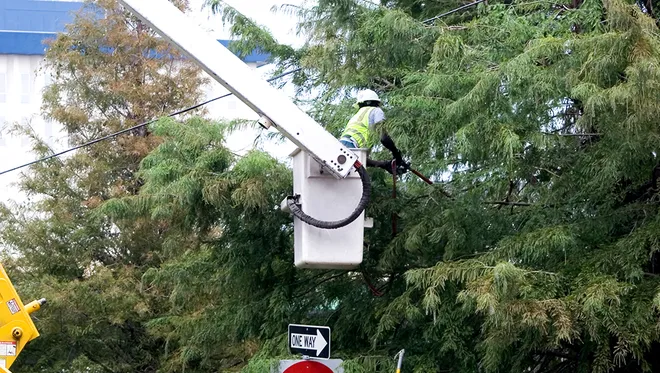There’s something about Virginia Water that stands out. Maybe it’s the calm pace of life, the leafy surroundings, or the feeling that everything you need is close by — from local cafés to lakeside walks. It’s a lovely place to live, and it’s no surprise that many people look to rent here.
But if you’re thinking of moving to the area, don’t rush in. Virginia Water rental properties come with a few rules and expectations. And knowing what to look out for can save you both time and trouble.
Looking for a Place? Start With a Plan
Begin with a clear budget. It might sound obvious, but it’s easy to forget that rent is only one piece of the puzzle. You’ll also have to cover council tax, energy bills, water, broadband, and possibly service charges if you’re in a flat.
Once you’ve done the maths, start browsing. Local letting agents in Virginia Water are a good shout — many know the area inside out. Online sites like Rightmove or Zoopla can also give you a feel for what’s out there. Just keep in mind: homes in Virginia Water don’t hang around for long. If you spot something you like, move quickly — but not blindly. Always ask questions and visit in person if you can.
The Tenancy Agreement: Read It, Then Read It Again
When you find the right place, you’ll be asked to sign a tenancy agreement — usually something called an AST (Assured Shorthold Tenancy). This sets out the basics: how long the rental lasts, how much you’ll pay, and what you’re expected to do while you’re there.
Read it carefully. All of it. Look for things like the tenancy start and end dates, how to report repairs, and what happens if you want to leave early. Some agreements include extra rules — no pets, no smoking, no decorating — so it’s best to know where you stand before you sign.
Not sure about something? Ask. A good letting agent or landlord should be happy to explain the details.
Deposits and Holding Payments: Know the Limits
You’ll almost always need to pay a deposit. For most homes, the legal limit is five weeks’ rent. This money is held as security — it covers damage, unpaid rent, or breaking the terms of the agreement.
By law, your deposit must be protected in a government-approved scheme. The landlord must also tell you where it’s held and how to get it back at the end of the tenancy.
Sometimes, you’ll also be asked to pay a holding deposit to reserve the property. This is usually one week’s rent and is often taken off your first payment if things go ahead. Just make sure you understand the terms: if you change your mind or don’t provide the right documents, you might not get it back.
One more thing — letting agents can’t charge admin or referencing fees. These were banned in England a few years ago. So if you see extra charges, ask why. It’s likely they shouldn’t be there.
The Other Costs to Watch
So, you’ve sorted the rent. What else?
Well, there’s council tax — most homes in Virginia Water fall into Band D or above, which means an annual bill of over £2,200. You’ll also need to pay for gas, electricity, and water. Don’t forget broadband and insurance too.
If you’re in a flat, check if there’s a service charge. This might cover things like cleaning shared areas or maintaining the lift. Not every landlord includes it in the rent, so it’s worth asking.
To be safe, plan for all of this before you move in. It’s much easier than trying to play catch-up later.
Safety First: Your Landlord’s Legal Duties
Every landlord must make sure their property is safe and up to standard. This includes:
- Smoke alarms on every floor
- A carbon monoxide alarm if there’s a wood burner or open fire
- An up-to-date gas safety certificate
- An Energy Performance Certificate (EPC)
Ask for these documents before you move in. You have a right to see them. If something doesn’t feel safe, speak up. Landlords are responsible for major repairs and keeping the home in good shape.
Your Rights as a Renter
Once you’re in, the home is yours to live in — and you have legal protection. As long as you follow the agreement and pay rent on time, your landlord can’t just kick you out.
If they want you to leave after the fixed term, they must give at least two months’ written notice. They also can’t enter the home without permission — 24 hours’ notice is the usual rule.
Planning to leave early? Check for a break clause in your contract. This lets you leave before the end of the term, often with some conditions. If there’s no break clause, you might still be able to go — but only if the landlord agrees or finds someone else to take over.
Settling Into the Area
Once you’ve got the keys, it’s time to make the place your own — within reason, of course. Most landlords won’t allow big changes without approval, but you can still add a personal touch with rugs, curtains, or furniture.
Virginia Water is an easy place to settle. The train station makes commuting simple, and the village itself is full of friendly faces, green spaces, and handy shops. Bin collection is run by Runnymede Borough Council — check their site for collection days. If you drive, make sure you know the parking rules. Some streets require permits, especially near the centre.
It also helps to keep the lines open with your landlord or letting agent. Good communication makes life easier for everyone, especially if a problem pops up. Keep a record of any requests or repairs in case you need to refer back later.
In Summary
Renting in Virginia Water isn’t just about finding a roof over your head — it’s about finding a home in a village that offers something special. Yes, the rents are higher than average. But you’re getting a safe, scenic, and well-connected place to live, with good schools, reliable transport, and a strong community feel.
Still, don’t let the setting distract you from the details. Read every contract, know your rights, and understand your responsibilities. Ask questions. Take your time. And plan for all the costs — not just the rent.
If you do that, you’ll be in a strong position to enjoy everything Virginia Water has to offer. Whether it’s for a year or something longer, you’ll have the peace of mind that comes from making an informed choice — and the comfort of knowing you’ve found somewhere that truly fits your needs.
Stay in touch to get more updates & news on Tech Probillion!




